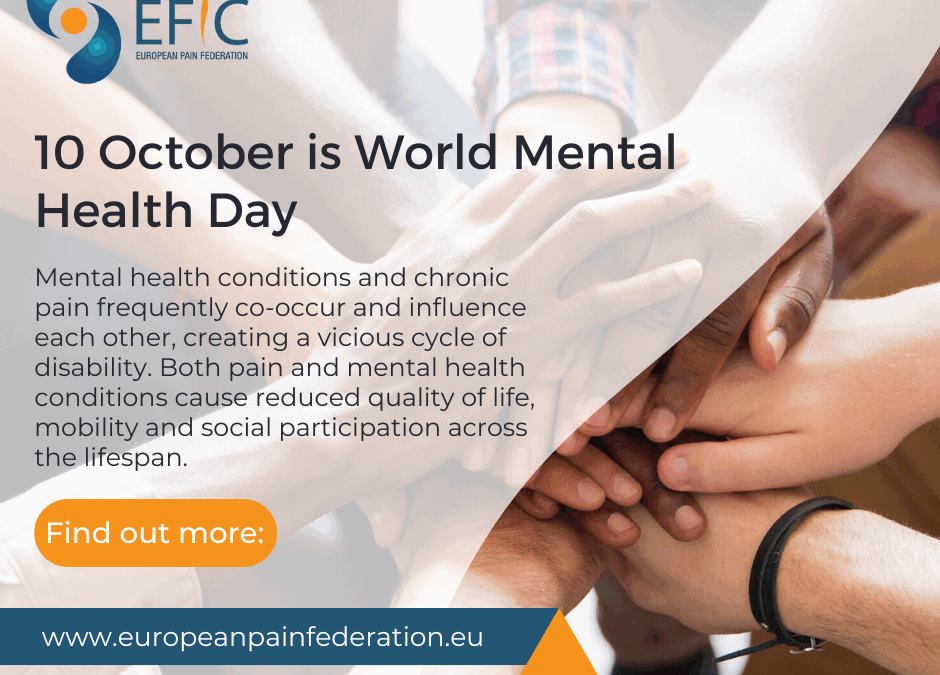About World Mental Health Day
10 October is World Mental Health Day, the annual recurrence of WHO’s campaign to celebrate the advancements in this field and raise awareness of upcoming mental health priorities.
This year’s theme is “Mental health in humanitarian emergencies”, underlining the urgent need to ensure access to mental health and psychosocial support services for people affected by crises such as natural disasters, conflicts, forced displacement or other emergencies. Such emergencies often lead to loss, trauma, social disruption, and increased vulnerability; everyone deserves support no matter their circumstances.
Crises amplify emotional distress, and the lack of timely mental health care can leave long-lasting scars not only for individuals, but for families and communities. In humanitarian settings, one in five people may develop a mental health condition, and psychosocial support must be integrated into emergency response systems.
Efforts must focus on ensuring that mental health services remain accessible during emergencies, whether through community-based care, remote interventions, or mobile mental health teams. It is not enough to respond to physical needs. Mental health must be considered a core component of public health intervention in crises.
EFIC Initiatives on Pain and Mental Health
For World Mental Health Day 2025, the European Pain Federation EFIC placed a strong emphasis on the close interconnection between chronic pain and mental health disorders. The EFIC 2025 Congress, held under the theme ‘Comorbidity of chronic pain and mental health disorders: Breaking the cycle’, highlighted this bidirectional relationship and the importance of integrated, multidisciplinary care.
The EFIC Congress 2025 included lectures, seminars, and workshops that sought to close the gap between pain medicine and mental health care, providing a platform for clinicians and researchers to discuss best practices in integrated treatment approaches.
Webinar: Integrating Pain and Mental Health Care
People living with pain frequently face mental health challenges—but health systems rarely connect the dots. For this year’s World Mental Health Day, EFIC and EPA will come together to launch a call to action for better integration of care, discuss recent research, and highlight important resources. Join the webinar on 10 October at 12:30–13:30 CET to explore how this work can influence the future of European healthcare, with a focus on integrated care, prevention, and person-centred approaches.
On the educational front, EFIC’s Academy platform provides content on assessing and treating mental health conditions in patients experiencing pain — for physicians, psychologists, physiotherapists, and nurses alike. These resources, accessible to EFIC Academy members, support capacity building for integrative care pathways.
EFIC is also engaged in the HaPpY Research Network (Comorbidity of Chronic Pain and Mood Disorders), funded by the European Union’s research programmes, which explores the shared mechanisms and interventions that can break the vicious cycle of pain and emotional distress.
SIP’s Commitment to Better Mental Health Policies
Addressing pain and mental health has been a key objective for the Societal Impact of Pain (SIP) platform. SIP’s Joint Statement on Pain and Mental Health, developed in collaboration with several organizations, calls for policy action to treat both in unison rather than in isolation.
SIP encourages policymakers to:
-
Integrate pain and mental health services, rather than separating them in policy and practice
-
Allocate sufficient funding for research on how pain and mental health influence each other
-
Provide early access to pain management programs, especially for patients at risk of developing chronic pain and mental comorbidity
-
Train healthcare professionals to recognize and manage the overlapping burden of pain and psychological distress
-
Involve persons with lived experience in designing services and policies
-
Address stigma in both pain and mental health domains, including among health professionals and in public discourse
-
Advocate for reintegration and adaptation of individuals living with pain and/or mental health conditions into the workforce, recognizing that supportive work conditions benefit wellbeing
